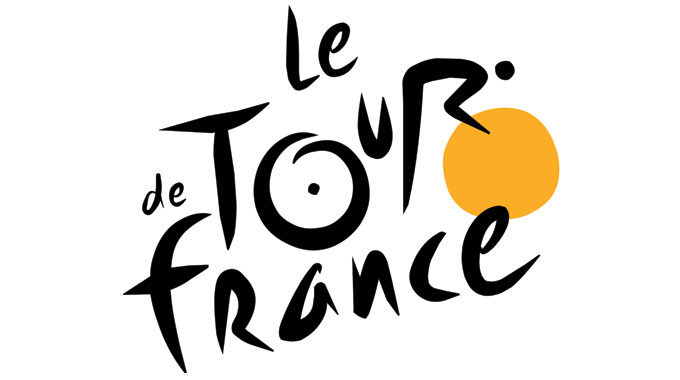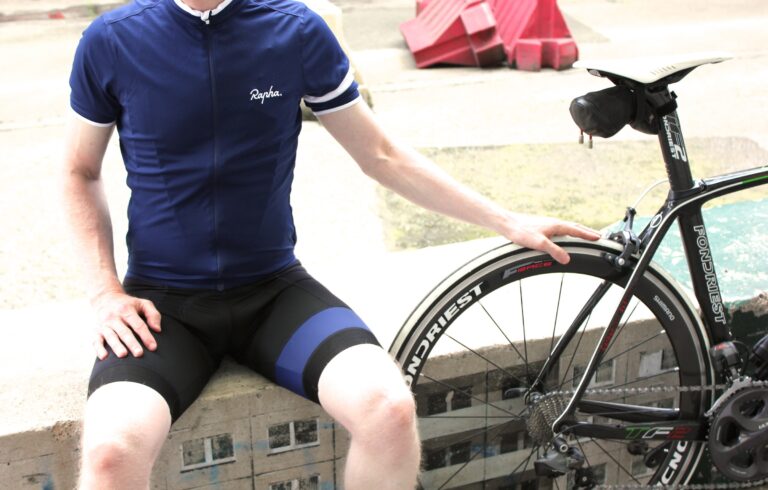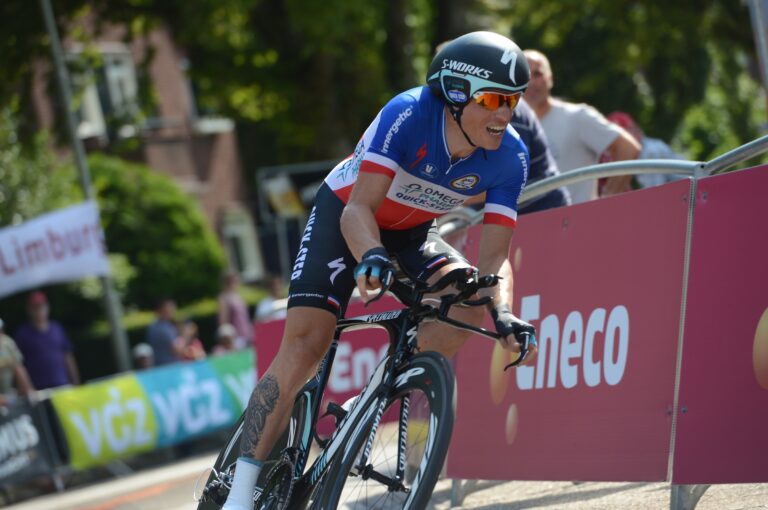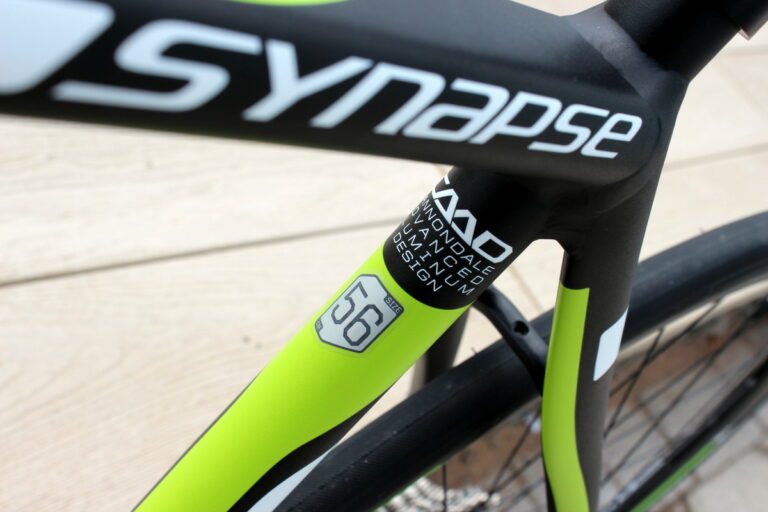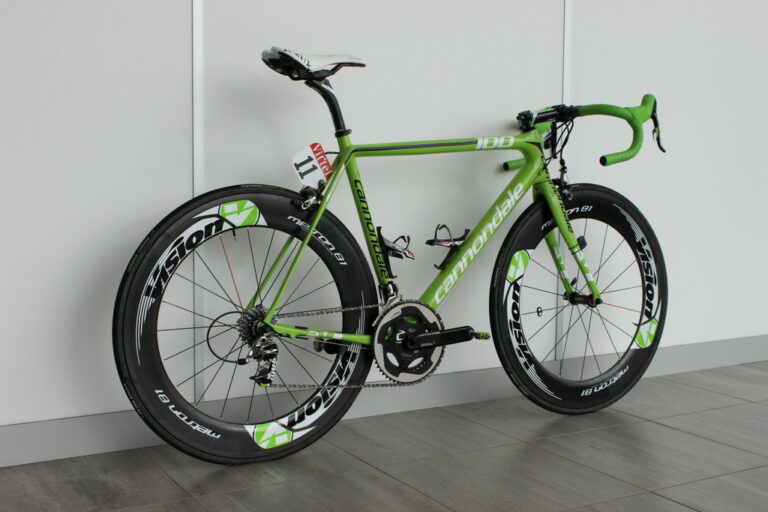Gilles Lapierre, grandson of the man who founded the company that bears his name, breaks off from his presentation to an international group of journalists to make a telephone call.
The man he is calling is Marc Madiot, a double Paris-Roubaix winner, and the general manager of FDJ, one of just two French teams in cycling’s elite WorldTour, and, more pertinently, the Tour de France.
Lapierre is supplier to FDJ, jointly sponsored by the French national lottery, and so the de facto national team, and its managing director is keen to hear from Madiot how the team has responded to the latest iteration of the Aerostorm time trial bike, finished the previous week, and raced for the first time mere hours earlier in the stage four time trial in Nice.
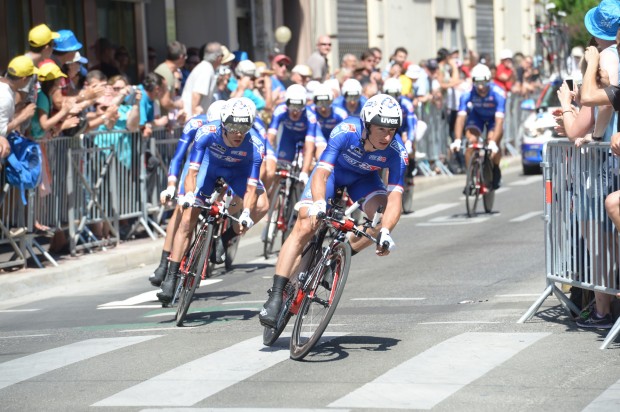
“I gave a call to Marc Madiot to say, ‘What about the global mood?’ Because it’s all about subjectivity among the riders as well,” Lapierre tells RCUK and a German colleague the following day. Scientific data proving that the new bike is more efficient is often not enough to convince an exhausted rider contesting a three week bike race, he concedes. “Then you have what is between ears. In the evening, when I called, I only had one question for Marc: ‘Tell me how they are feeling’. He said they are feeling very positive.”
Lapierre is at once charming and deadly serious; fiercely patriotic but keenly aware that his business now sells more road bikes overseas even than in France, where it is the biggest supplier of high-end road bikes. He is a gracious host at the dinner table, an obvious leader at the factory, and a frank interview subject. He readily admits that the lynchpin of his company’s 12-year relationship with the FDJ cycling team is his friendship with its equally irrepressible manager.
Lapierre is at once charming and deadly serious; fiercely patriotic but keenly aware that his business now sells more road bikes overseas even than in France, where it is the biggest supplier of high-end road bikes
“I like this guy,” Lapierre says of Madiot. “He is not a big talker, but he is a very straight guy. He doesn’t have time to lose – me neither. We understand before the other one finishes his sentence. It helps a lot.”
Lapierre was in the FDJ team car at last year’s Tour de France when Thibaut Pinot, the new hope of French cycling, rode to stage eight victory in Porrentruy, roared on by Madiot through every pedal stroke, often at close proximity as the manager leaned from the window to shout his encouragement.
“Marc was simply reacting honestly and in the Marc Madiot style,” Lapierre shrugs. “We’ve known each other for a long time and what everyone saw on the television was simply Marc.”
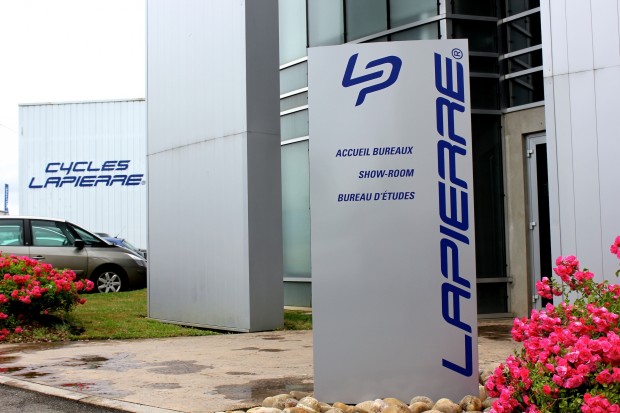
Pinot’s victory has represented a watershed for Lapierre and his company. He speaks frankly of an obligation to provide the best machinery and resignedly of the money invested by the business in wind tunnel testing. His production manager, Remi Gribaudo, seems a very different character to Lapierre, but equally driven.
Gribaudo leads us on a tour of the factory, one in which much of the Lapierre range is assembled by hand. There is no production line as such. Instead, the frame and all of its necessary components are delivered on a small cart to one of just four assemblers, who build to a standard that requires the dealer only to straighten the bars, wrap them in tape, and fit the front wheel. They are part of a 17-strong workforce that between them produce between 120 and 180 bikes a day.
Thibaut Pinot’s stage eight victory at the 2012 Tour de France has represented a watershed for Lapierre, who speaks frankly of an obligation to provide the best machinery and resignedly of the investment required in wind tunnel testing
We pass an area in which bottom brackets and headsets are pressed into aluminium ‘cross frames. The procedure is completed in a motion so smoothed with practice it is seemingly seamless. The bottom bracket threads are greased, the plastic sleeve inserted into the non-driveside and the bearing cups secured with a hand press. A separate press is used for the headset, but the procedure is the same and completed with equal speed and precision. The seat clamp is applied while the headset is pressed, and once the three procedures are complete, the frame is returned to the rack.
The test lab is another area of the Lapierre factory in which the bike enthusiast could lose days. Machines wrench relentlessly at bottom brackets and head tubes, at fork steerers and dropouts. It is here that a frame is subjected to forces unlikely to be replicated on the bike.
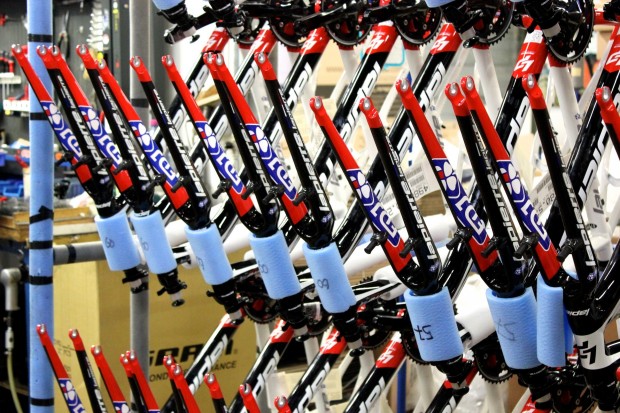
The assembled machines are taken to another of Lapierre’s facilities: a warehouse capable of storing some 15,000 bikes, located about 15km from the Dijon headquarters. Bikes manufactured in other facilities used by Lapierre in Hungary and Turkey, courtesy of its parent company, the Accell Group, are also stored there. Lapierre sold his company to the Dutch firm in 1996, after expressing an intention to strengthen its stake in the IBD market (“This group approached us, not the other way around, which is excellent when you want to negotiate your price,” he smiles).
We wander through a part of the factory temporarily converted to a photographer’s studio. The new Xelius 800 is sheltered by what looks like a large white tent. The Xelius Ultimate, finished in a blue and yellow livery inspired by the Renault F1 cars of the mid-noughties, stands on a giant sheet of white paper, beneath a similarly oversized flood light. The scene is doubtless being repeated at bicycle factories across the world, as the new model year approaches.
‘I like this guy,’ Lapierre says of Madiot. ‘He is not a big talker, but he is a very straight guy. He doesn’t have time to lose – me neither. We understand before the other one finishes his sentence. It helps a lot.’
The impromptu photographic studio is located close to the area in which Lapierre complete their custom builds. The “Ultimate” programme offers bespoke paint schemes and high-end builds. It’s here that, among many other options, customers can choose a fork decorated with a pin-up girl, inspired, says Lapierre, by French chic and the American fighter pilots of WWII.
For now, however, Lapierre has greater concerns than marketing gimmicks. The hundredth Tour de France is in full swing and as the French head of a French bicycle manufacturer supplying a French team, he is in little doubt about the importance of the performance of the team and of his bikes. “It’s a part of our culture, of our country,” he says, before a lengthy digression on the public mood in recession-hit France, and the importance of the Tour to any bicycle manufacturer with global ambitions.

“It’s a big responsibility moreover when the team results are better and better,” he says of FDJ’s post-2012 Tour ambitions. “When you are ranked number fifteenth, twentieth, or twenty-fifth, it’s very different to when you are part of the top 10.”
With just two stages remaining, FDJ has yet to clinch that longed-for victory. Another day in the Alps and a finish in the capital should provide all the motivation the team requires. And if the scenery and occasion fail to provide sufficient motivation, the riders can always rely on the less sentimental encouragement of Madiot and Lapierre.

